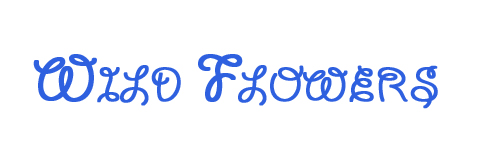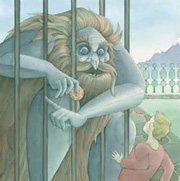Fairy Tales and Opera
"Peraps some accident has befallen him, said the king, and the next day he sent out more huntsmen who were to search for him." -Iron Hans
Fairy-tales and fables make excellent operatic source material. Composers from the Romantic and to the Contemporary with a knack for 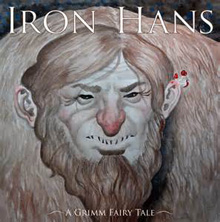 a larger-than-life compositional style seem to do particularly well with operas based on the stories of The Grimm Brothers, Hans Christian Andersen and their like. From Rossini's Cincerella to Antonin Dvorak's Rusalka (from The Little Mermaid) to Humperdink's Hansel and Gretel to Stravinskiy's The Nightingale and even to Philip Glass' The Juniper Tree, fairy tales have become successful operas.
a larger-than-life compositional style seem to do particularly well with operas based on the stories of The Grimm Brothers, Hans Christian Andersen and their like. From Rossini's Cincerella to Antonin Dvorak's Rusalka (from The Little Mermaid) to Humperdink's Hansel and Gretel to Stravinskiy's The Nightingale and even to Philip Glass' The Juniper Tree, fairy tales have become successful operas.
Wild Flowers
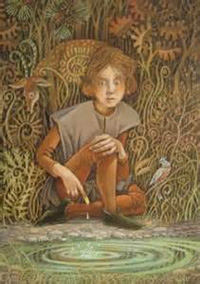
a chamber opera in two acts by composer Ray Luedeke and librettist Sean Dixon, is based on the Grimm Brothers story Iron Hans about a wild iron-skinned man and a prince and a princess.
Cast:
- Iron John (a wild man)................................Bass
- Narrator (and other roles)...........................Baritone
- Boy.............................................................Boy Soprano
- Young Man (Prince)...................................Tenor
- Princess.....................................................Soprano
- Children's Chorus
Chamber Orchestra: Fl. (picc.) / Ob. (Eng. Hn.) / Horn / String Quartet /
Double Bass / 1 Percussion / Piano
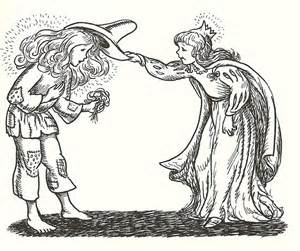 A Special Role for the Children's Chorus
A Special Role for the Children's Chorus
The Chorus have a crucial role in Wild Flowers,
portraying everything from a battling army to a plague of insects.
A Parable
Most people see the story as a parable about a boy maturing into adulthood. The story also became the basis for the book Iron John: A 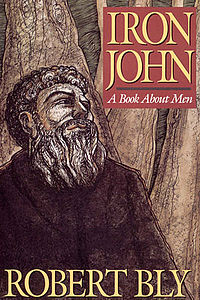 Book About Men by Robert Bly which spawned the Men's Movement in the early 1990s after spending 62 weeks on the The New York Times Best Seller list. This is reflected in Wild Flowers in a somewhat humerous way as a struggle between the boys and the girls in the chorus. It is also reflected when the Princess herself wants to save her father's kingdom but is refused in favor of the Prince.
Book About Men by Robert Bly which spawned the Men's Movement in the early 1990s after spending 62 weeks on the The New York Times Best Seller list. This is reflected in Wild Flowers in a somewhat humerous way as a struggle between the boys and the girls in the chorus. It is also reflected when the Princess herself wants to save her father's kingdom but is refused in favor of the Prince.
The Story
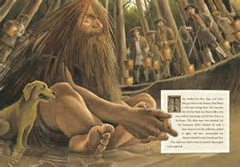 A King sends a huntsman into a forest nearby, and the huntsman never returns. The King sends more men into the forest, each meeting with the same fate. The King sends all his remaining huntsmen out as a group, but again, none return. The king proclaims the woods as dangerous and off-limits to all.
A King sends a huntsman into a forest nearby, and the huntsman never returns. The King sends more men into the forest, each meeting with the same fate. The King sends all his remaining huntsmen out as a group, but again, none return. The king proclaims the woods as dangerous and off-limits to all.
Some years later, a wandering explorer accompanied by a dog hears of these dangerous woods and asks permission to hunt in the forest, claiming that he might be able to discover the fate of the other hunters. The man and his dog are allowed to enter. As they come to a lake in the middle of the forest, the dog is dragged under water by a giant arm. The hunter returns to the forest the next day with a group of men to empty the lake. They find a naked man with iron-like skin and long shaggy hair all over his body. They capture him and he is locked in a cage in the courtyard as a curiosity. No one is allowed to set the wild man free or they will face the penalty of death.
Years later, the young prince is playing with a ball in the courtyard. He accidentally rolls it into the cage where the wild iron-skinned man picks it up and will only return it if he is set free. He states further that the only key to the cage is hidden beneath the Queen's pillow.
Though the prince hesitates at first, he eventually builds up the courage to sneak into his mother's room and steal the key. He releases the wild iron-skinned man who reveals his name to be Iron John (or Iron Hans depending on the translation). The prince fears he will be killed for setting Iron John free, so Iron John agrees to take the prince with him into the forest.
As it turns out, Iron John is a powerful being and has many treasures that he guards. He sets the prince to watch over his well, but warns him not to let anything touch it or fall in because it will turn instantly to gold. The prince obeys at first, but begins to play in the well, eventually turning all his hair into gold. Disappointed in the boy's failure, Iron John sends him away to experience poverty and struggle. Iron John also tells the prince that if he ever needs anything, simply to call the name of Iron John three times.
The prince travels to a distant land and offers his services to its King. Since he is ashamed of his golden hair, he refuses to remove his cap before the king and is sent to assist the gardener.
When war comes to the kingdom, the prince sees his chance to make a name for himself. He calls upon Iron John who gives him a horse, armor, and a legion of iron warriors to fight alongside him. The prince successfully defends his new homeland, but returns all that he borrowed to Iron John before returning to his former position.
In celebration, the King announces a banquet and offers his daughter's hand in marriage to any one of the knights who can catch a golden apple that will be thrown into their midst. The King hopes that the mysterious knight who saved the kingdom will show himself for such a prize.
Again the prince asks Iron John for help, and again Iron John disguises the prince as the mysterious knight. Though the prince catches the golden apple and escapes, and does so again on two more occasions, he is eventually found. The prince is returned to his former station, marries the princess, and is happily reunited with his parents. Iron John too comes to the wedding, but now without the shaggy hair or iron skin that made him frightening. He reveals he was under enchantment until he found someone worthy and pure of heart to set him free.
